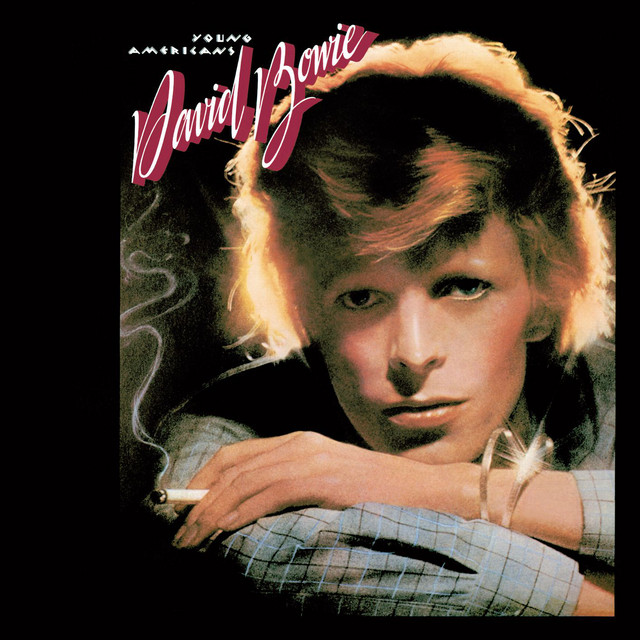
It’s 1975, and David Bowie’s done with glitter and aliens. Ziggy Stardust’s in the rearview, Aladdin Sane’s packed away, and the Diamond Dogs tour’s just wrapped. Enter the Thin White Duke, strutting into soul territory with a wink and a groove. Young Americans, the album and its title track, isn’t just a pivot—it’s a full-on reinvention, a love letter to America’s sound filtered through Bowie’s English cool. This is “plastic soul,” as Bowie cheekily called it, and the title track is a banger that grabs you by the collar and demands you dance. In a world of auto-tuned monotony, “Young Americans” still slaps—funky, bittersweet, and unapologetically alive. If you’re tired of Bowie’s chameleon act, that’s your loss, because this track is a masterclass in becoming someone new.
I stumbled onto “Young Americans” during a late-night vinyl spin, the kind where the world fades and the music takes over. That opening snare snap—crisp, urgent—hits like a shot of whiskey, followed by a slinky saxophone riff from David Sanborn that’s pure soul swagger. The groove kicks in, driven by Willie Weeks’ bass and Andy Newmark’s drums, pulling you into a rhythm so infectious it’s like the song’s got its own gravitational pull. Bowie’s vocals slide in, equal parts strut and sincerity, walking a tightrope between theatrical croon and raw emotion. He’s not Marvin Gaye, and he’s not trying to be—this is soul through a cracked lens, a Brit’s wide-eyed take on America’s heartbeat. The production, helmed by Tony Visconti, is tight yet alive, every instrument locking into a groove that’s both funky and cinematic.
What makes “Young Americans” a masterpiece is its paradox: it’s soulful but sly, heartfelt but laced with cynicism. Bowie called it “plastic soul,” a nod to The Beatles’ early R&B covers and his own outsider status in the genre. He’s not claiming the throne—he’s borrowing it, reimagining it, and making it his own. The lyrics paint a fractured America—heartbreak, politics, youth chasing dreams that don’t quite add up. “I read the news today, oh boy,” Bowie sings, slipping in a Beatles nod with a smirk, his voice dripping with both longing and irony. It’s a song about a country he admires and questions, wrapped in a groove that makes you want to dance through the contradictions. The backing vocals—Luther Vandross among them—add a gospel glow, tying it all together like a neon-lit choir.
This track isn’t just a song; it’s a moment. Bowie recorded Young Americans at Sigma Sound Studios in Philadelphia, chasing the Philly soul sound while still reeling from his glam rock days. His 1974 Soul Train appearance—awkward, earnest, and utterly Bowie—proved he was all in, even if the soul was “plastic.” The song’s energy is electric, like a road trip through a neon-drenched America, windows down, heart on sleeve. It’s not about authenticity—it’s about transformation, about daring to try something new when the world expects you to stay in your lane. In 2025, when pop is often a soulless algorithm, “Young Americans” is a reminder of what music can be: bold, human, and alive with possibility.
“Young Americans” isn’t just a Bowie classic—it’s a vibe that transcends eras. It’s for the kids digging for real music, not auto-tuned fluff, and for the old heads who still feel that ‘70s groove. It’s funky, it’s bittersweet, it’s a little fake but a whole lot real. Spin it loud, let that sax riff pull you in, and lose yourself in Bowie’s reinvention. He didn’t just change his sound—he changed the game. So crank it, dance it, feel it. This is plastic soul with a beating heart, and it’s still one of the greatest rides in rock.